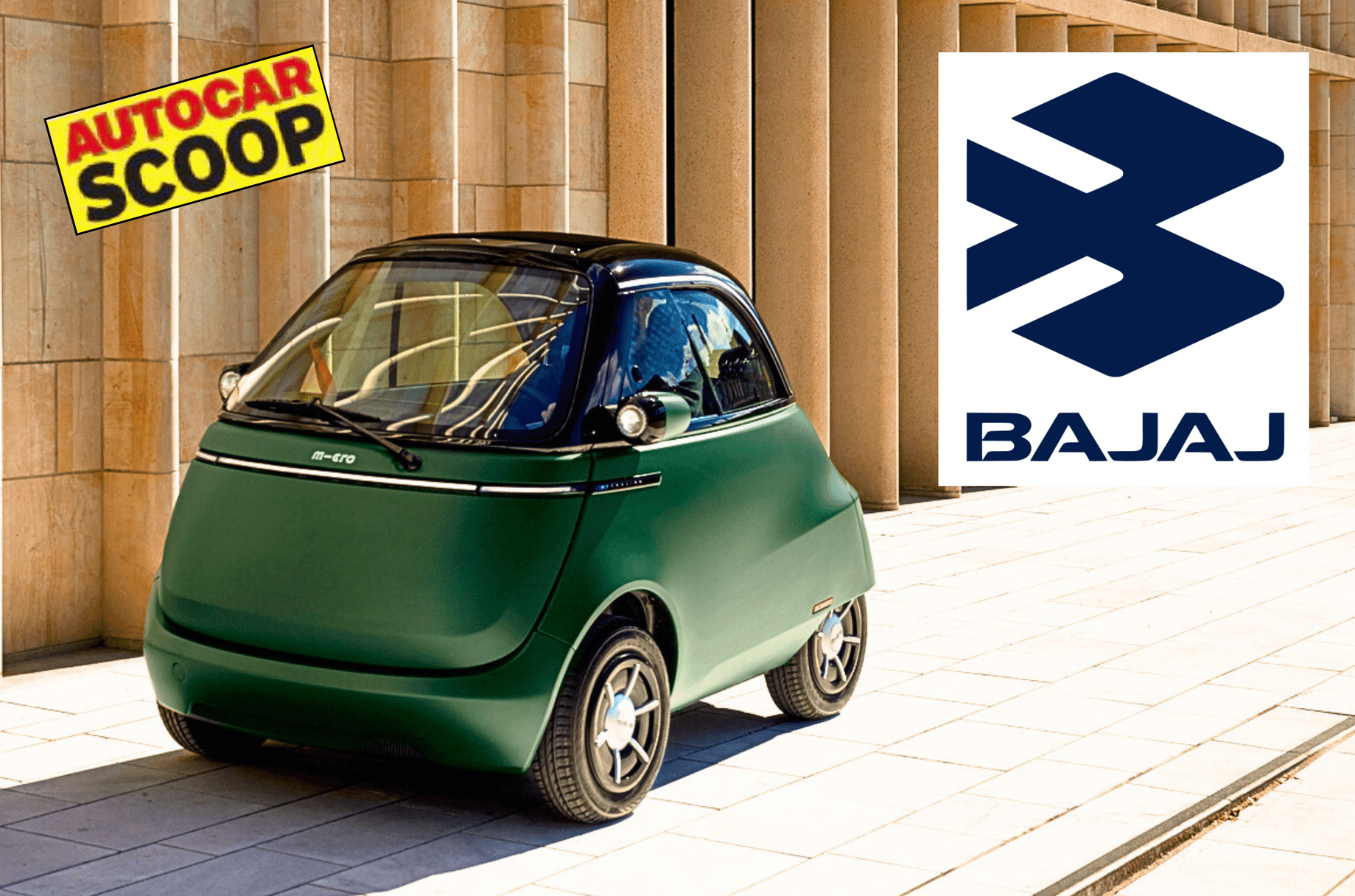Bajaj Auto, India’s largest two-wheeler exporter, is in talks with Swiss startup Micro Mobility Systems about a strategic partnership to produce and export electric quadricycles, including the acquisition of a significant minority stake by the Pune-based firm in Micro Mobility Systems. Sources say the Micro Mobility partnership talks are similar to Bajaj Auto’s alliances with KTM and Triumph, where Bajaj Auto’s manufacturing base serves as an export hub for their respective global markets.
- Bajaj is interested in Mircolino, an electric four-wheeler
- Micro Mobility makes 2Ws, 3Ws and 4Ws
- Bajaj makes the Qute, an ICE quadricycle
Both of Bajaj’s partnerships with KTM and Triumph have jointly developed vehicle architectures and powertrains, which each company uses to produce products for global markets. Micro Mobility Systems AG, founded in 1996 by Wim Ouboter, is a Swiss company specialising in creating solutions for short-distance urban travel.
Our sister publication, Autocar Professional, has learned that the partners have been in discussions for almost a year. Micro Mobility founder Wim Ouboter and his two sons, Oliver and Merlin Ouboter, visited Bajaj Auto’s factory in Maharashtra. Oliver serves as Operations Manager, and Merlin is the Marketing Manager at Micro Mobility Systems.
Micro Mobility’s flagship products include Microscooters, Microlino, and Microletta. The Microlino is a two-seater electric quadricycle inspired by the 1950s BMW Isetta bubble car, combining the comfort of a car with the efficiency and footprint of a motorbike. It targets urban users seeking a sustainable, stylish, and practical alternative to traditional cars.
The Microletta is a three-wheeled electric scooter that combines stability with an attractive design. It offers an alternative for short commutes and has been developed as a bridge between scooters and compact electric cars.
Micro Mobility’s financial information is not publicly available, but the company is believed to be generating turnover of tens of millions of euros. In 2024, the company produced its 1,000th Microlino car (quadricycle).
Bajaj Auto’s key interest lies in the Microlino, which is homologated under the L7e category of the European Union’s vehicle classification system, designating it as a quadricycle rather than a conventional car.
The L7e category is for heavy quadricycles with a maximum unladen mass of 450kg (excluding batteries) and a top speed not exceeding 90kph (56mph). The Microlino adheres to these weight and speed restrictions and meets all EU electric vehicle requirements.
The Microlino quadricycle has unique access from the front of the vehicle, but if the partnership fructifies, Bajaj Auto is likely to change the vehicle’s design and may introduce side access.
The plan is to offer electric and conventional ICE powertrains on the platform. Among the multiple concepts explored, Bajaj Auto may use a twin-cylinder 650cc engine in the quadricycle for both the Indian and global markets.
“There will also be gasoline and CNG quadricycles based on a twin-cylinder 650cc engine under development at BAL if the partnership goes through,” added the sources.
Responding to a query sent via an email regarding the potential partnership with Micro Mobility Systems, Rakesh Sharma, executive director of Bajaj Auto, told Autocar Professional, “We have no comment to offer on your queries. It would be highly premature and speculative to have any discussion at this time.”
A query sent to Micro Mobility Systems is yet to elicit a response.
Bajaj Auto is a dominant player in the Indian three-wheeler market, with a market share exceeding 65 percent. It has long been convinced of the potential for building quadricycles as a category and has made multiple attempts – including the Qute – but met with limited success. It has also attempted to export the Qute to overseas markets, but the numbers remain minimal.
The company also worked on an EV version of the Qute.
Also See: Hero Splendor electric launch in 2027
Kia three-row hybrid SUV under development to rival XUV700, Safari


